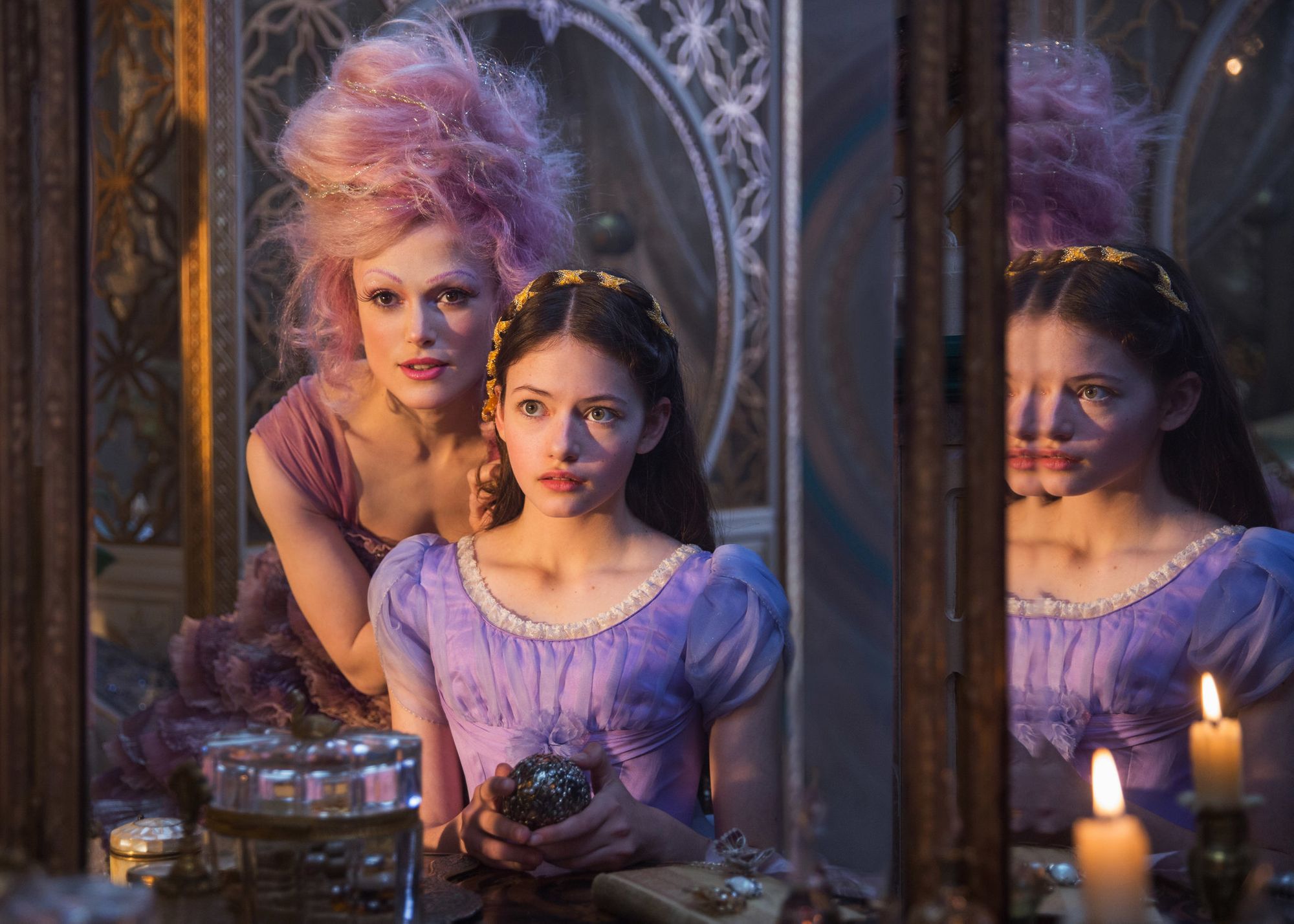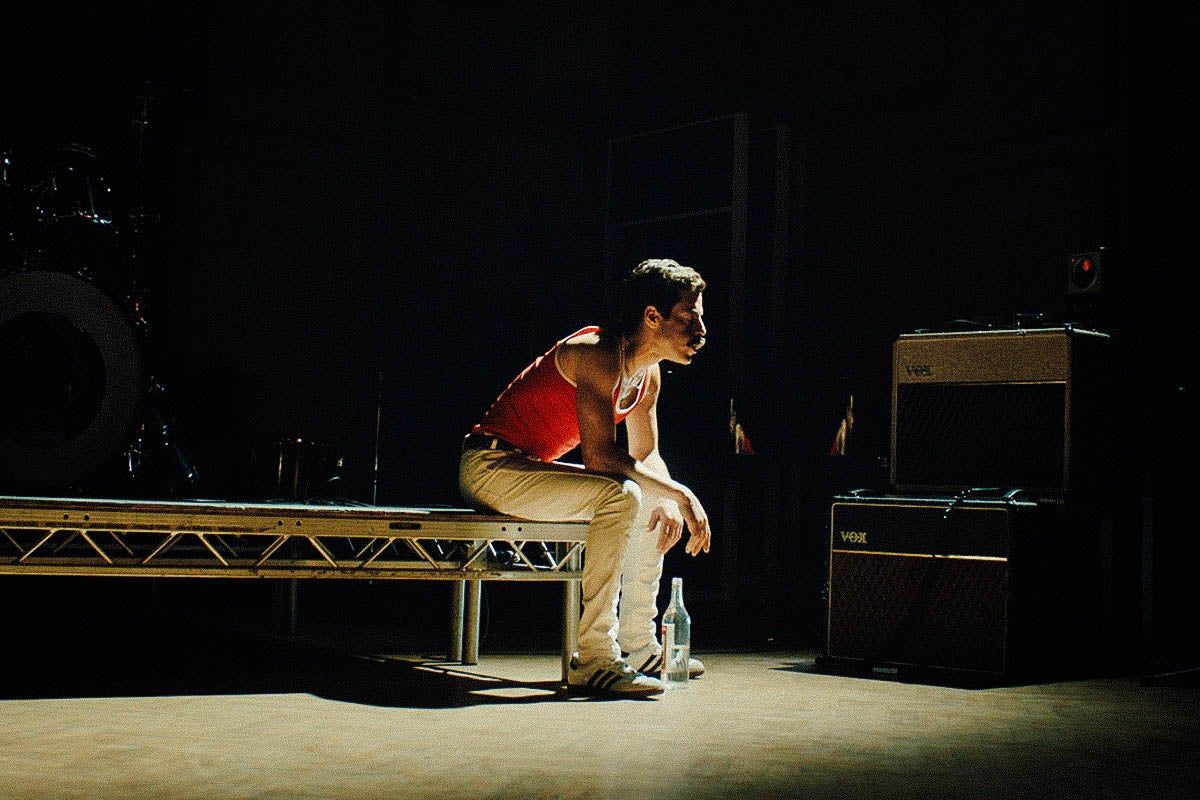
The Burdens Your Characters Bear
From the L.A. Screenwriter collection.
[Note: minor spoilers for Widows, Boy Erased, Bohemian Rhapsody, The Front Runner, First Man, The Nutcracker and the Four Realms, The Girl in the Spider’s Web, and Creed II.]
Fleshing out characters can be complex and tedious. Deciding what details open up the character for the audience and what’s simply minutiae takes maturity that usually only comes with practice and the development of skills. One of the key insights for crafting characters that feel real is determining what weighs on their mind as they go about their day–their burdens. These burdens can be parsed in a variety of ways, depending on the story you're telling, how obvious these burdens are to other characters, and if the burdens become central to the plot or remain motivational factors in the character’s psyche.
A few basic categories of burdens:
Regret for What They Did or Didn’t Do
The weight that many of us carry around often centers on regret. Some of us regret the things we’ve done. Others regret those opportunities we never had the courage to take. Whatever the source for our regret, a scar remains, reminding us of what might have been if only we made different decisions.
Decisions are what lie at the heart of regret. When the audience knows that a character has either exercised bad judgement or made mistakes in the past, we gain insights into what patterns of behavior the character struggles with and may be prone to do again. Similarly, if a character missed an opportunity to have something they wanted but couldn’t bring themselves to commit to, we gain insights into what lesson they may learn later in the narrative.
In Widows, the regret that Victoria experiences for turning a blind eye to her husband’s criminal involvement drives her toward her own criminal pursuits. Nancy Eamons experiences a very similar type of regret in Boy Erased, having stood by quietly as others made decisions about her son’s life.

Guilt or Shame
Researcher and author Brené Brown has said that guilt results from what we have done but shame results from who we are. This is an important distinction to remember when crafting characters as it speaks to the character’s feelings about their experiences and if they have internalized those feelings as part of their own identity. A character may feel regret for what they have done because they got caught but might not experience any guilt or shame for the action. A character might also feel guilt for something they've done, but not regret it or feel any shame about it. Additionally, a character may feel shame about who they are though they have done nothing regrettable.
The ways that we distinguish between guilt, shame, and regret give the audience nuanced understandings about the complexity of a character’s humanity–which is important in making the character feel real.
Freddie Mercury experiences shame about who he is in Bohemian Rhapsody. His battle with shame and the pain it causes in his life drives his artistic expression and creates a uniqueness in how he approaches music, which in turn serves as a balm for his agony.
Gary Hart’s character in The Front Runner appears to regret what he’s done when he sees how it affects his family but doesn’t seem to experience any guilt about his actions or shame for who he is.
Responsibility for Others
Some burdens are not about the character at all but involve the weight brought about by the character’s relationship with someone else. Most often that character is someone in the protagonist’s family, as is the case in all the examples below. The weight the character experiences can involve feeling responsible for another character’s death, as is the case with Neil Armstrong in First Man and Clara in The Nutcracker and the Four Realms. It can involve a character the protagonist couldn’t save, as is the case with Lisbeth Salander in The Girl in the Spider’s Web. Or it may involve the responsibility a protagonist feels in protecting another character’s legacy, as is the case with Adonis Creed in Creed II.
Feeling responsible for someone other than ourselves is near universal in the human experience. Most of us have another person in our lives that we would be willing to sacrifice for and take on burdens to protect. Knowing who your protagonist feels this way about connects them to the audience, making us willing to shoulder the character’s burdens as well.
*Feature Photo: Keira Knightley and Mackenzie Foy in The Nutcracker and the Four Realms / Disney (2018)